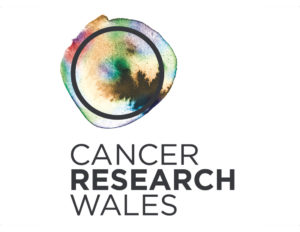Think Cancer! WICKED Trial (Wales Interventions and Cancer Knowledge about Early Diagnosis)
Start Date Jun 2016
Code L5-Aff
Status Ongoing
Wales, like other UK countries, has relatively poor cancer outcomes and late diagnosis is a major contributor. Referral from primary care is informed by NICE guidance, but GPs in Wales are less likely to refer or investigate, and cancer guideline adherence is lower. There is an evidence gap relating to effective ways of reducing primary care intervals. The ThinkCancer! Study is part of a programme of research called the Wales Interventions and Cancer Knowledge about Early Diagnosis (WICKED). The overall aims of the WICKED Programme are to improve the quality and consistency of primary care approaches in order to improve timely diagnosis of cancer. Through the synthesis of current evidence and gathering of new empirical evidence, a complex intervention has been developed which aims to change primary health care professionals’ knowledge, attitudes and clinical behaviour, with the intention of reducing primary care intervals and improving cancer outcomes. The proposed intervention is a practice-focused workshop comprising separate, themed sessions for clinical and non-clinical staff focusing on early cancer diagnosis and cancer awareness respectively. These sessions are followed by a whole-team session concentrating on the key elements of a practice-specific Cancer Safety Netting Plan (CSNP), and the appointment of a
Cancer Safety Netting Champion (CSNC) at the practice. This Champion will lead on implementing the CSNP within and throughout the practice. In addition, we will provide a handbook to clinical members of staff containing clinical update information and a summary of the latest NICE guidelines on suspected cancer (NG12, 2015).
Funding
Cancer Research Wales: £800,000
Aims & objectives
The aim of the ThinkCancer! study is to determine the feasibility of a future definitive randomised controlled trial (RCT) of this complex intervention compared with usual primary care. This incorporates assessing the feasibility of recruiting practices, delivering the intervention, intervention refinement, guiding the future trial design, and testing the outcome measures.
Methodology
Four work packages will inform the development of the behaviour change intervention (see image 1). Work package 1 will identify relevant evidence-based interventions (systematic review of reviews) and will determine why interventions do or do not work, for whom, and in what circumstances (realist review). Work package 2 will assess cancer knowledge, attitudes, and behaviour of GPs, as well as primary care teams’ perspectives on cancer referral and investigation (GP survey, discrete choice experiment [DCE], interviews, and focus groups). Work package 3 will synthesise findings from earlier work packages using the behaviour change wheel as an overarching theoretical framework to guide intervention development. These earlier work packages are now completed. Work package 4 will test the feasibility and acceptability of the intervention, and determine methods for measuring costs and effects of subsequent behaviour change in a randomised feasibility trial. There will be an embedded process evaluation and economic evaluation within a randomised feasibility trial delivered to primary care practices in Wales.
Outputs & impact
The main anticipated output of the WICKED programme is the planning and design of a large randomised phase 3 trial, informed by the feasibility trial. The primary outcome measures are designed to demonstrate impact in early diagnosis of cancer by
i) Increasing the two week referral rate of urgent suspected cancers
ii) Decreasing the primary care interval
Next steps
The next steps of the WICKED programme involve the recruitment, randomisation and delivery of the ThinkCancer! intervention to primary care teams in Wales. There will be iterative adaption of the workshops informed by a comprehensive data collection and process evaluation package.
Publications
- Disbeschl S, Surgey A, Roberts JL, Hendry A, Lewis R, Goulden N, Neal R, et al. Protocol for a feasibility study incorporating a randomised pilot trial with an embedded process evaluation and feasibility economic analysis of ThinkCancer!: a primary care intervention to expedite cancer diagnosis in Wales. Pilot and Feasibility Studies, 2021. doi:10.1186/s40814-021-00834-y



